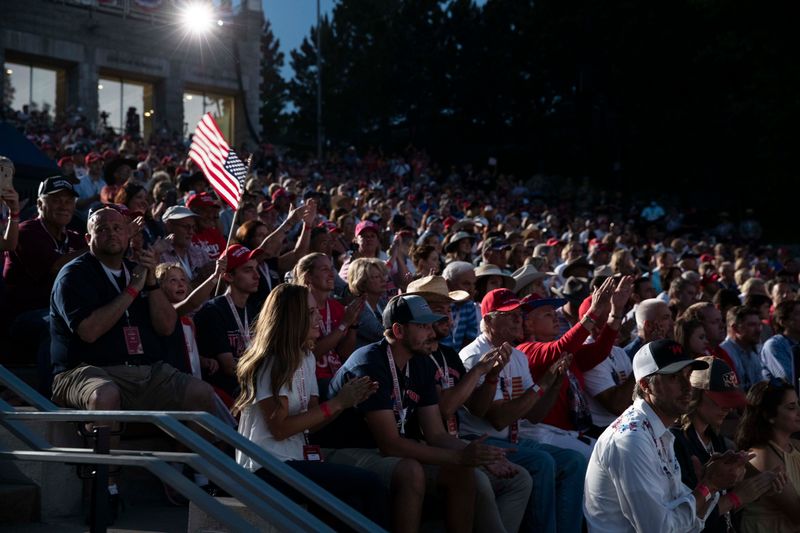Boomers get a lot of flak for what they don’t like—avocado toast, participation trophies, or even certain emojis.
But look closer, and a strange pattern starts to emerge. These 15 things they can’t stand might actually reveal more about us—our values, our habits, and how fast the world is changing.
Let’s unpack what this generational divide really says about modern life.
1. Cancel Culture
Boomers often see cancel culture as a threat to traditional values. There’s a strong attachment to personal responsibility over social accountability. They value constructive dialogue over public shaming, feeling that open discussions foster growth. The idea of “cancelling” doesn’t resonate with those who grew up in a culture valuing debate. A preference for learning from mistakes rather than immediate retribution is evident. This reflects an era where free speech was a cornerstone of progress, not something to be curtailed.
2. Participation Trophies
Participation trophies, to Boomers, might symbolize a shift from achievement to mere effort. This reflects their belief in meritocracy and grit. Raised in an era where rewards were earned, they see trophies for participation as diluting the value of hard work. The shift away from clear winners can be unsettling for those who equate success with tangible accolades. This change is often viewed as encouraging complacency, contrasting with the resilience they were taught to cherish.
3. Overdependence on Technology
Boomers often express discomfort with our reliance on technology. Growing up in a time where self-sufficiency was key, the dependence on gadgets and apps appears foreign. This generation values hands-on problem-solving over digital shortcuts. The advent of AI and smart devices adds to their unease, as they reminisce about simpler times. The fear isn’t just about understanding technology but losing the skills they were proud to master.
4. Job-Hopping
In the eyes of Boomers, job-hopping is synonymous with disloyalty. Having grown up during times when long-term commitment and career stability were ideals, the frequent job changes of younger generations seem unsettling. They value the traditional climb up the career ladder, which contrasts sharply with today’s gig economy. Stability was synonymous with success, a stark contrast to current trends. Their careers were often a testament to patience and gradual achievement.
5. “Everything Is Offensive” Mentality
Boomers often find themselves baffled by the growing list of what’s considered offensive today. Raised in a less sensitized era, they might see this as an overreaction. They grew up in a time where thicker skin was a given, and words were seldom dissected for hidden meanings. The rapid cultural shifts can feel alien, as they navigate a landscape that’s constantly evolving. Their confusion often stems from a well-intentioned adherence to ingrained norms.
6. Work-Life Balance Talk
Boomers may see the modern emphasis on work-life balance as a sign of shifting priorities. In their time, identity was rooted in productivity and sacrifice. They were taught that success comes from hard work, often at the expense of personal time. The idea of prioritizing mental health over work might appear as a departure from dedication. Yet, they also recognize the benefits of balance, even if it was less emphasized in their own lives.
7. Tattoos and Piercings
Despite some Boomers having tattoos, they still view visible body modifications with a critical eye. There’s a lasting association between appearance and professionalism. Raised in times when body art was rebellious, they often equate it with nonconformity. While some embrace the change, others see it as a divergence from formality. Tattoos and piercings challenge the conservative norms they were once accustomed to.
8. Informal Dress Codes
Boomers often dislike the casualization of attire, from workplaces to weddings. To them, respect is communicated through presentation. Growing up with stricter dress codes, they find casual attire unsettling in formal settings. The decline in formality challenges the decorum they were taught to uphold. Casual dress codes seem to undermine the respect once shown through polished appearances, reflecting shifting societal norms.
9. Online Influencers
Boomers may not understand how influencers make a living. They value tangible skills and traditional careers over digital fame. Raised in a time where professions were defined by physical work, the concept of earning through social media seems abstract. The shift to online personas as careers can be bewildering. This represents a departure from the tangible contributions they valued, leaving them grappling with new definitions of success.
10. Emojis and Slang
Boomers cringe at the rapid evolution of internet language. The constant change in slang and emojis can feel exclusionary, as it deviates from their familiar communication styles. They grew up with a different set of cultural reference points, making it challenging to adapt. This resistance isn’t just about language, but a deeper connection to their established ways of expression. New forms of communication can feel alien, pushing them out of their comfort zones.
11. Changing Gender Norms
Boomers struggle with the shifting ideas around gender roles. As they navigate a world where long-held definitions are evolving, confusion is common. Raised with clear-cut roles, the fluidity of today’s identities presents a challenge. It’s not always resistance but the rapid pace of change that’s daunting. They’re often trying to understand and adapt, even when it feels like the world is moving faster than they can keep up.
12. Streaming over Traditional TV
Boomers often miss the structured experience of traditional TV schedules. The shared experience of watching shows on a set time is replaced by streaming’s convenience. Raised in an era where TV was communal, they find nostalgia in the rhythm of watching together. The shift to on-demand content can feel isolating, lacking the camaraderie they once enjoyed. It’s not just about technology but the lost shared cultural rituals.
13. “No One Calls Anymore”
Boomers feel neglected by the texting culture. They prefer direct, voice-based communication, valuing real-time interaction. Raised in a time where phone calls maintained relationships, the shift to text feels impersonal. For them, talking is an expression of connection, lost in the brevity of texts. The digital age’s preference for messaging can feel like emotional distance, missing the nuance and warmth of a conversation.
14. Minimalism and “Throwing Stuff Away”
Boomers often resist the minimalist trend. Raised in times valuing items for their history, the idea of discarding feels wasteful. Objects hold memories, a sentiment not easily parted with. The minimalist approach contrasts starkly with scarcity-era mindsets. While they see the appeal of simplicity, letting go of possessions tied to experiences is challenging. Their attachment isn’t just material but deeply nostalgic, rooted in a life of accumulated stories.
15. Automation Replacing Humans
Boomers worry about automation replacing jobs and eroding social connections. The fear extends beyond employment to losing human interaction. Raised in times where personal touch was paramount, they struggle with machines taking on roles humans once filled. Automation symbolizes a loss of meaning and identity. Their concern is not just economic but an existential reflection on the diminishing need for human contribution in everyday life.















